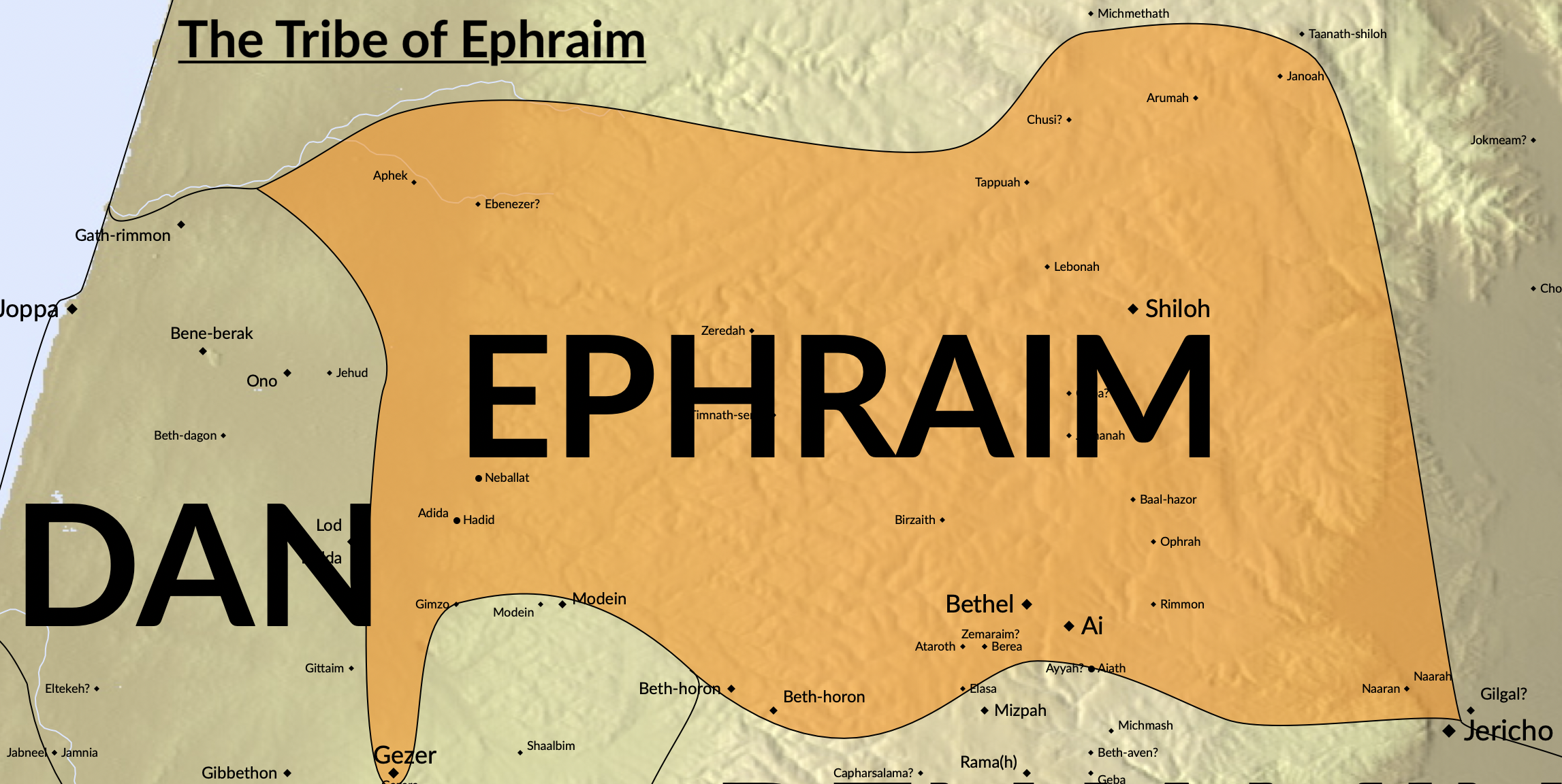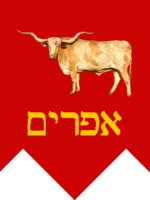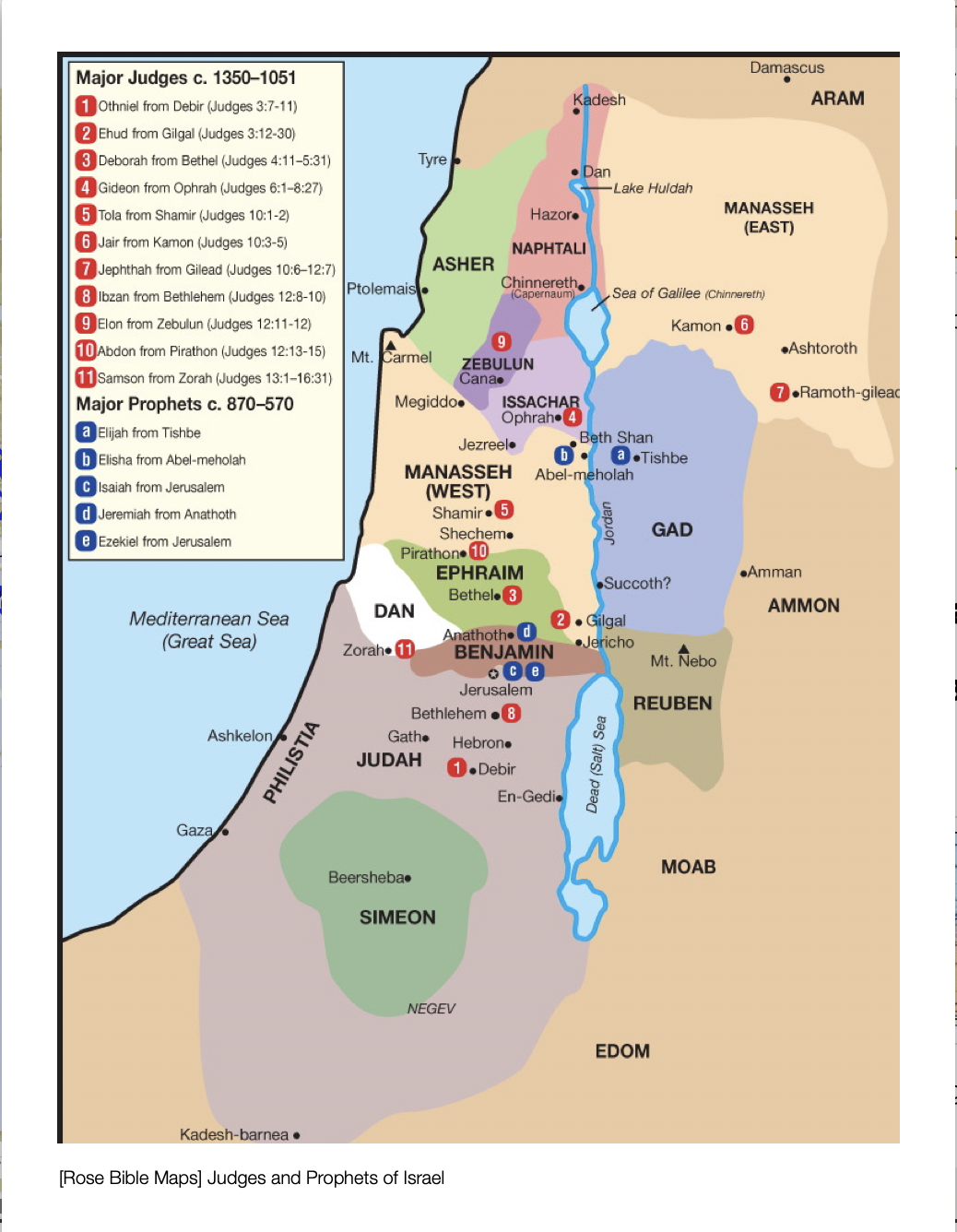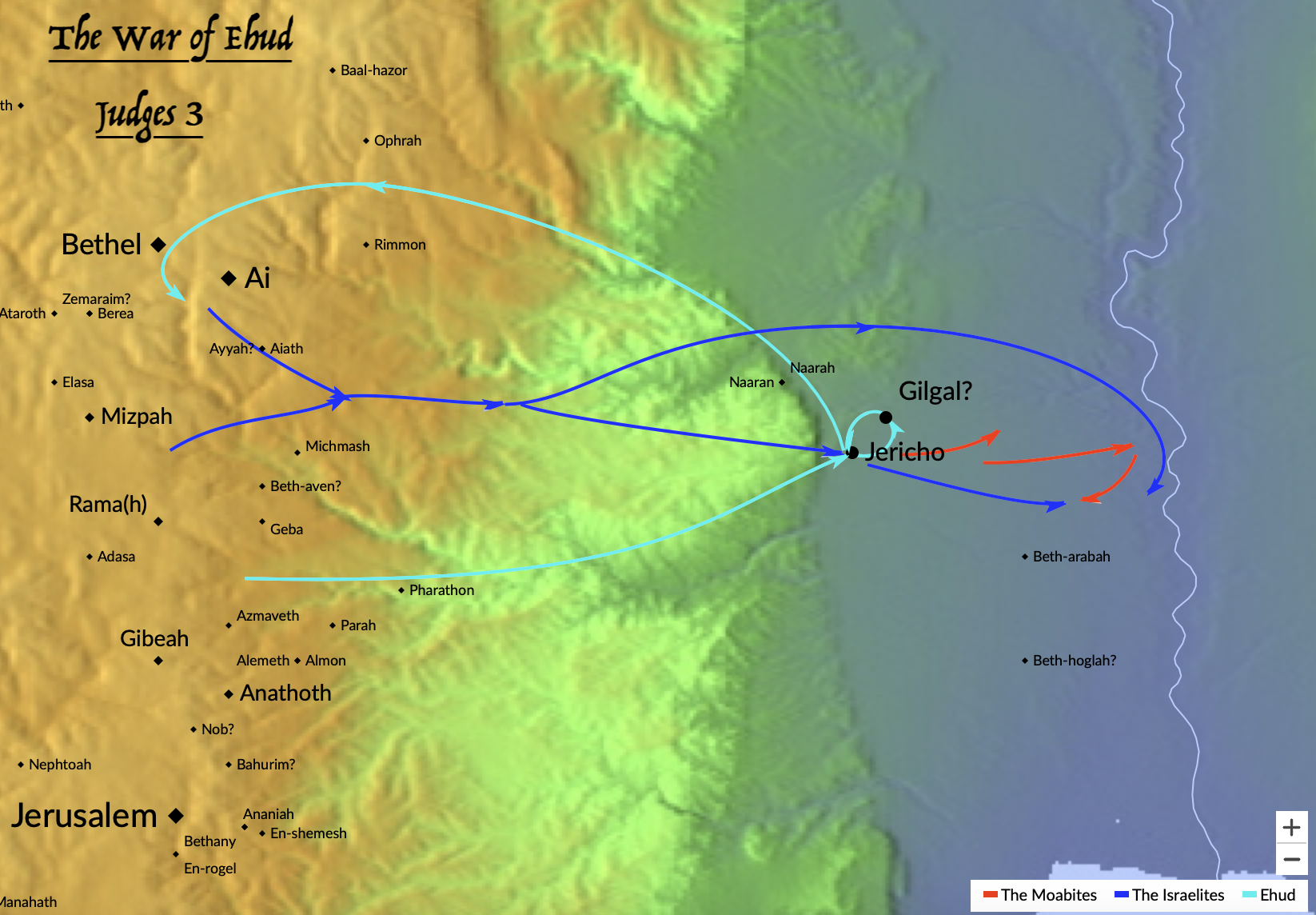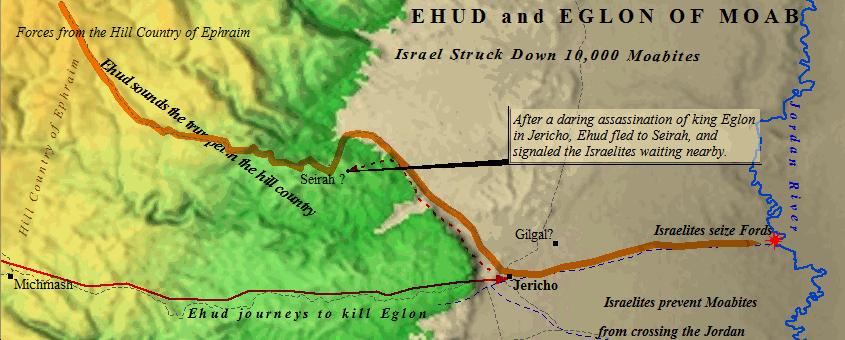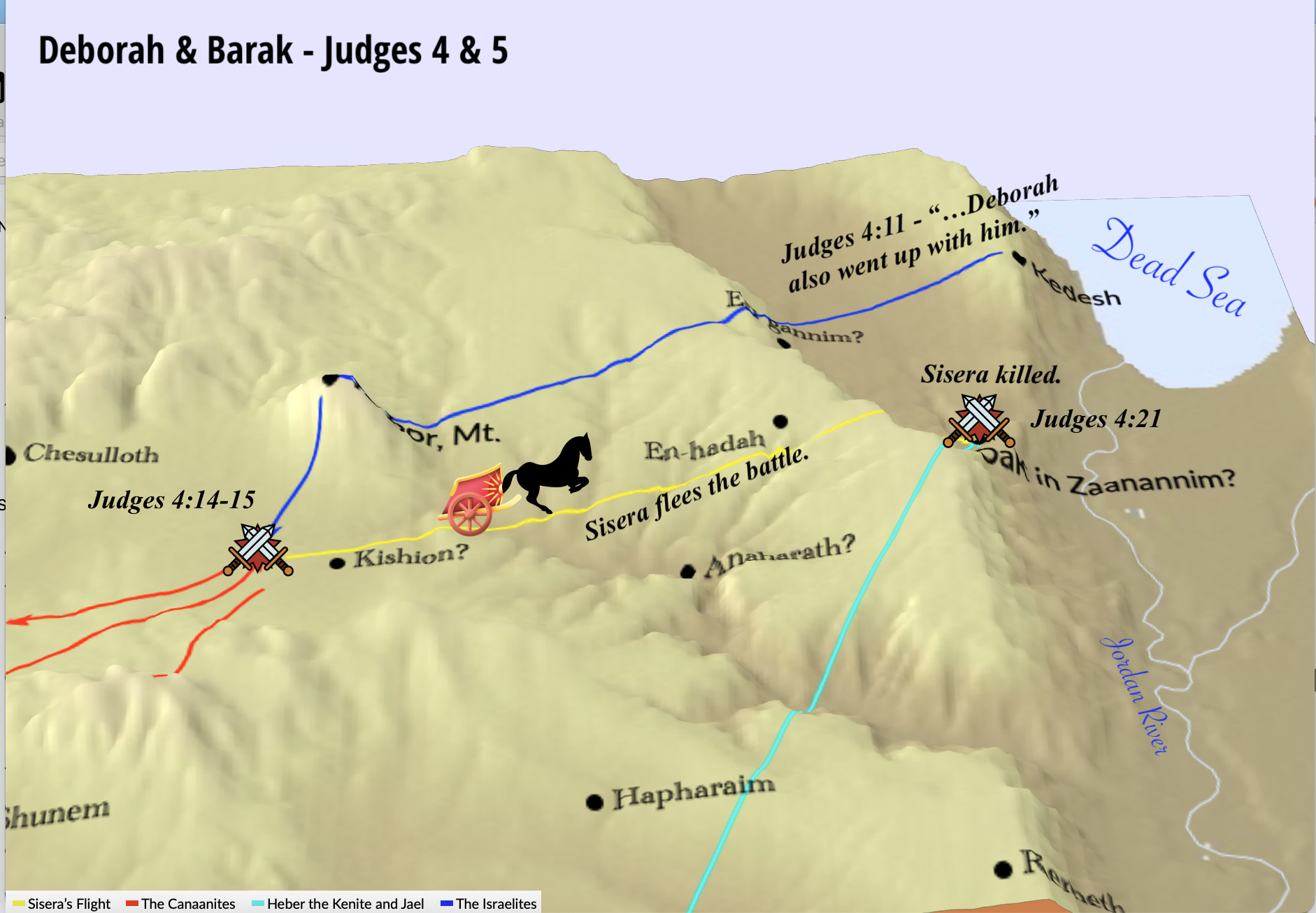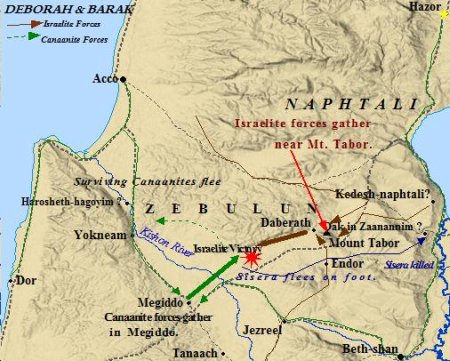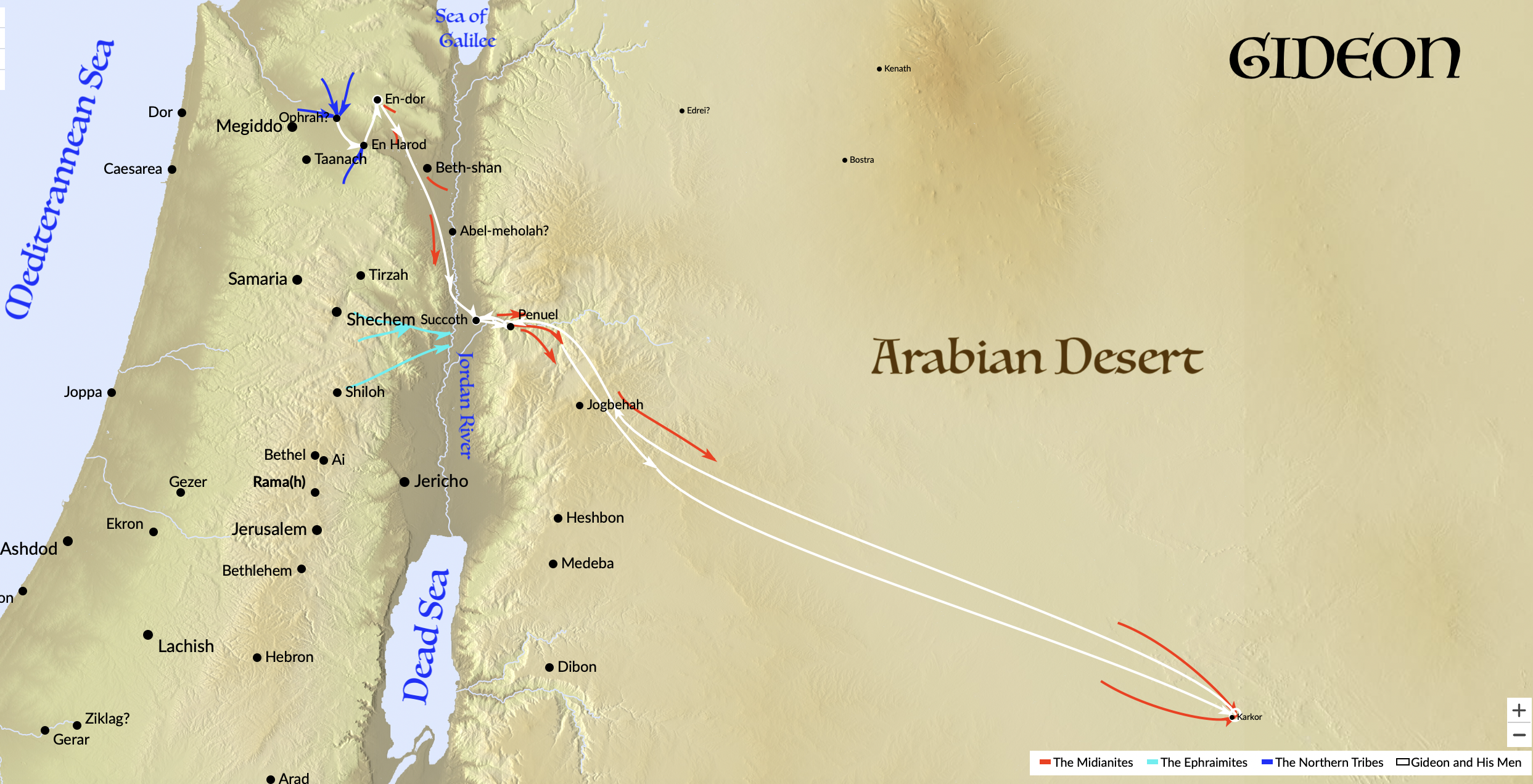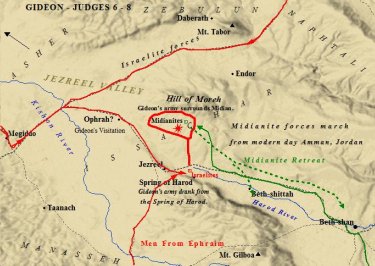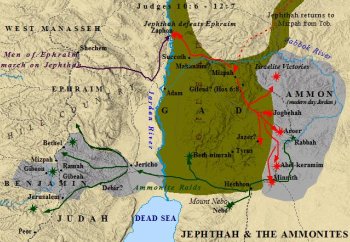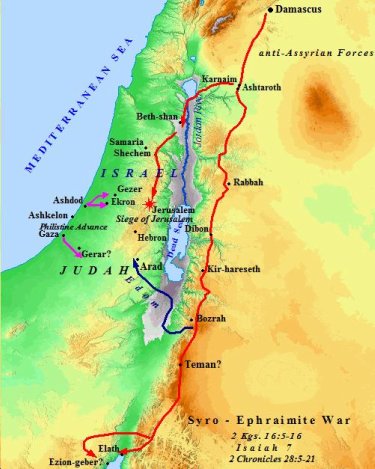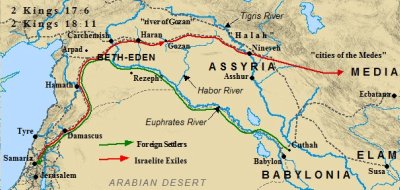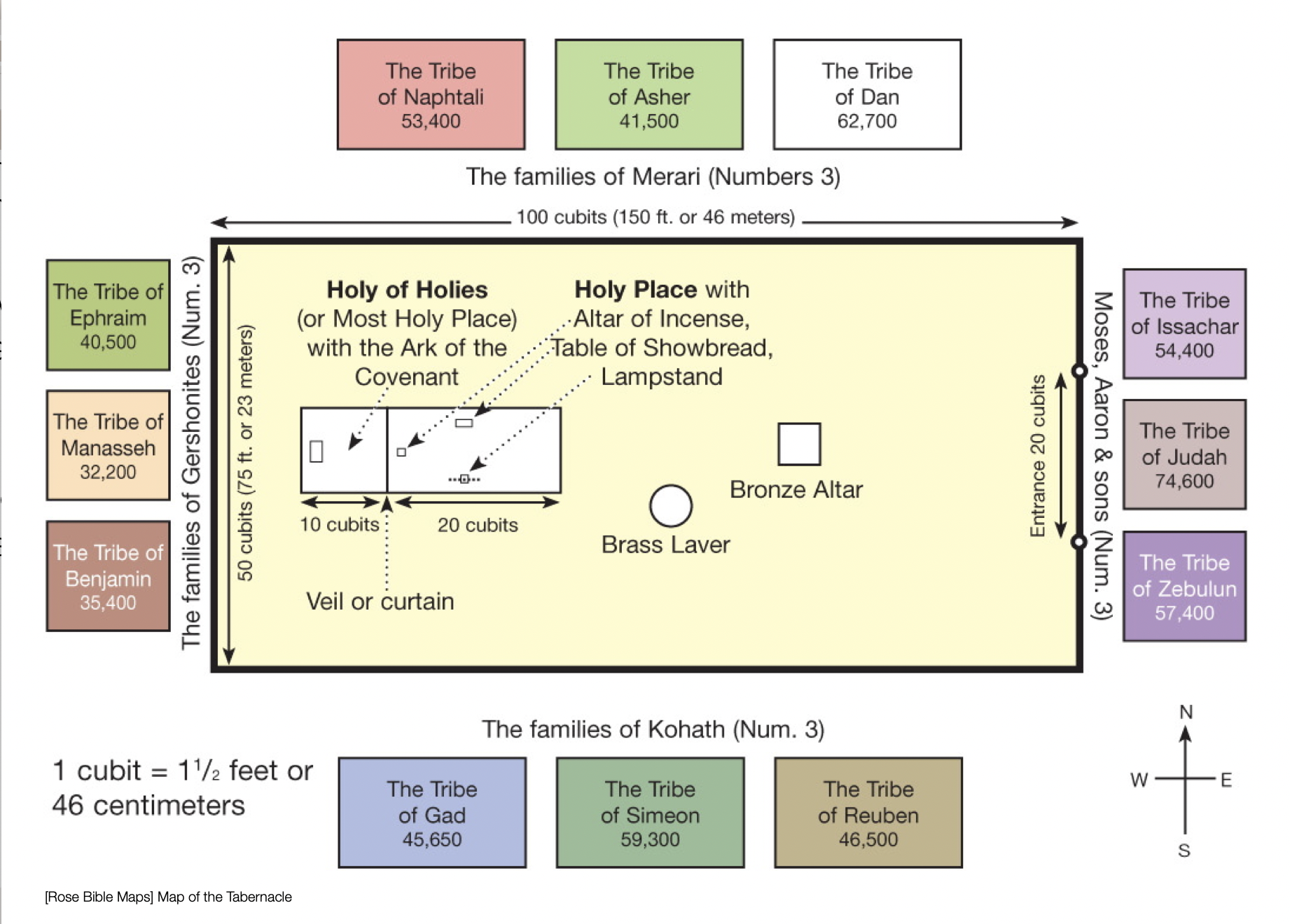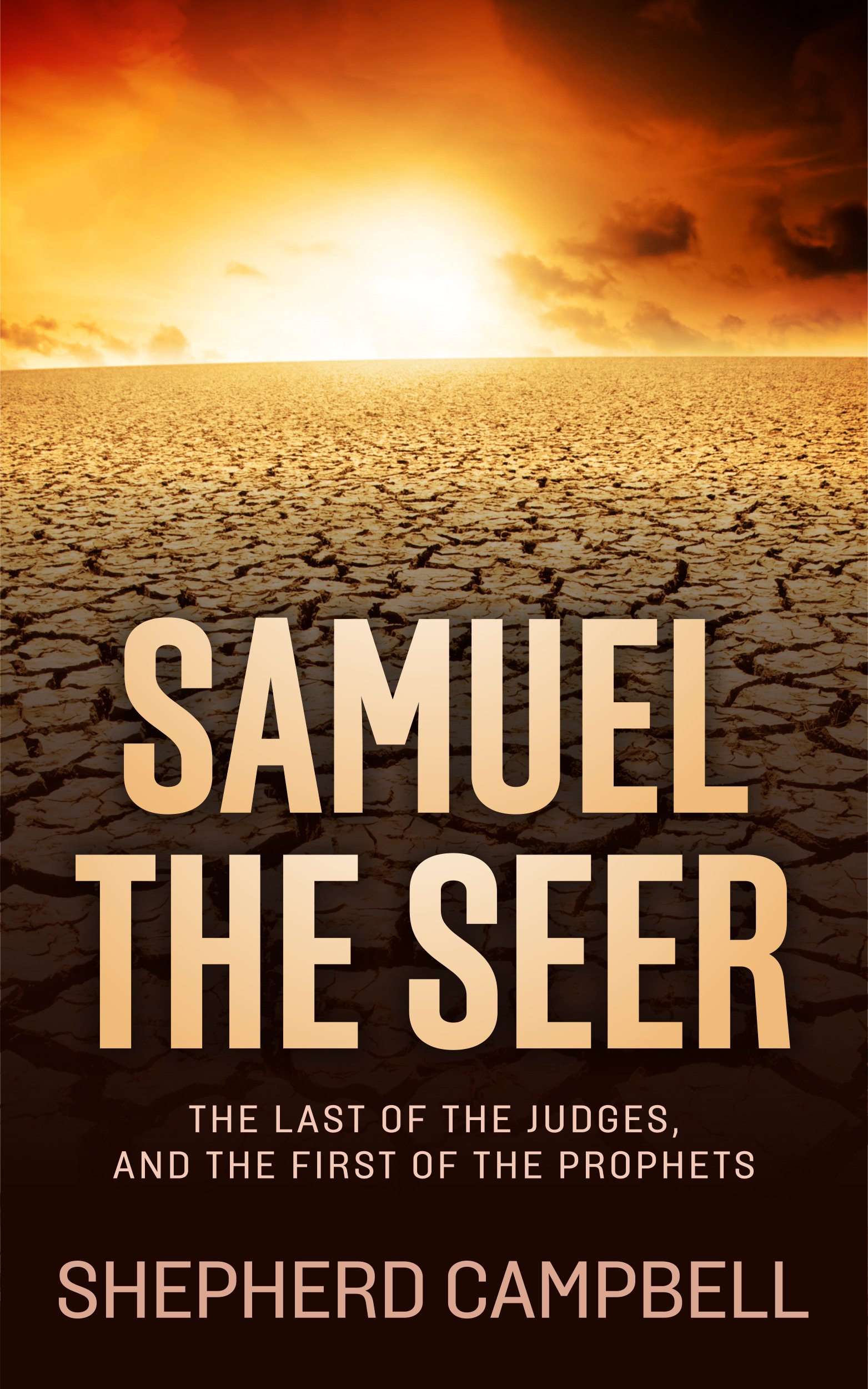VISIT OUR FACEBOOK PAGE!
The Ephraimites of Ephraim
Ephraimites and the Judges
The battle with the Amalekites & Israel in the wilderness may have impacted the Ephraimites more than other tribes. The tribe experienced a decrease in tribal population between the first and second census. In the first census of the 12 tribes of Israel, taken in Numbers 1:32-33, the tribe of Ephraim numbered 40,500 men.
However, in Numbers 26 a census is taken of the new generation of Israelites. This was to be the generation which would begin the conquest and settlement of Canaan.
These men were infants or not even born when Moses had led Israel out of Egypt. The Ephraimites numbered only 32,500 men in verse thirty-seven.
Though it may be presumptuous to say so, it is likely Israel was engaged in more conflicts as the one described with the Amalekites.
Perhaps many conflicts were not as intense as the one with the Amalekites, but raids and skirmishes seem likely. Joshua would have been in charge of facing such engagements.
EPHRAIMITES PAGE CONTENTS
Click on a link below to view that section.
Jeroboam I, first king of Israel
Map of the Deportation of IsraelThe Ephraimites, thus, would have been on the front lines of Israel's security and defense. Perhaps their low numbers in the second census reflect their role under Joshua, an Ephraimite himself, as the primary defenders of the sons of Israel.
When studying the Ephraimites from the Old Testament, it becomes evident they played a signficant role throughout all of ancient Israel.
However, their role changes drastically between the period of time from the Judges to the Monarchy. The tribe of Ephraim during the Judges is one of bravery in battle, haughtiness in nature and spirit at times, yet often on the front lines of the conquest; fighting on behalf of Israel and God.
In the opening verse of Deuteronomy 34 Moses stands atop Mount Nebo as God shows him the Promised Land. Fascinatingly, God Himself buried Moses somewhere on Mount Nebo.
He did this so that no man may ever know his burial place. The opening verse of Joshua 1 officially passed the torch from Moses to Joshua, son of Nun, an Ephraimite from the tribe of Ephraim.
Ephraimites were sure to have played a significant role in Joshua's reign. To have one from your tribe ascend to the leadership of the nation would be the equivalent of a state or city producing a President of the United States, or a similar position in other world governments.
Joshua's first test was the battle of Jericho. God showed Himself faithful once again as the Israelites triumphed over Jericho.
Throughout the book of Joshua the Israelites engage in one Canaanite conflict after another. After Joshua's victory at Hazor, the whole of the land was effectively open enough for Jewish settlement.
The nation of Israel, thus, began their settlement of the land promised them by the God of their fathers, the God of Abraham, Isaac, and Jacob.
Under the leadership of Joshua, it is conceivable Ephraimites experienced certain tribal privileges. Throughout the rest of the Old Testament, Ephraim is seen striving after the leadership of the tribes, as if trying to regain what was lost with the death of Joshua.
It was upon the death of Joshua in chapter 24 that the 12 tribes of Israel lost the unifying personality of their mighty warrior/king. Joshua had held the 12 tribes of Israel together, however loosely that hold may have been.
However, now each tribe began to exercise control of its own affairs. Each tribe was responsible for cleansing it's allotment from the Canaanite influence. In many instances, the tribes failed to drive them out completely, as God had instructed. This sort of tribal independence was accompanied by Judges, appointed by God, to rule over the larger disputes.
The story of these Judges can be found primarily in the Book of Judges of the Old Testament. One must keep in mind each Judge ruled at varying lengths. This was no elected position, with an established succession. These were individuals called and inspired by God to settle disputes and deliver Israel from oppressors. The narratives concerning each Judge is not necessarily in chronological order in the Bible.
Certain judges likely overlapped each other, occurring simultaneously in different parts of the country. These judges vary greatly in nature and character as well.
Deborah is called a prophetess, Samson seems more like a playboy, Jephthah practiced human sacrifice which he dedicated to God. These were difficult times for the Israelites, and the Philistine presence continued to mount.
The Philistines were a major force which contributed to Israel not driving the Canaanites completely from the land. War with the Philistines, coupled with complacency and spiritual idolatry, led to the Israelites intermixing with much of the Canaanite population.
It was foes such as these Philistines and Canaanites, even desert invaders, which the Judges fought against throughout the Old Testament.
The Ephraimites failed to drive out the Canaanites of Gezer. Whether they became spiritually complacent, intermarrying and mixing their blood with the local population, or were militarily incapable of destroying them Scripture does not say.
The more familiar they became, however, the more likely they were to adopt Canaanite religious beliefs and gods. The Old Testament is not a picture of an obedient nation, wholeheartedly following God, united with each other.
It is often quite the opposite, yet, they remain united at heart in the belief of the one God of Abraham, Isaac and Jacob. However, at times God would have to remind them of His promise. He would send foreign invaders to enslave and oppress the Israelites.
In such instances, men from various tribes would rise up and answer God's call to deliver His people. These were the Judges of Israel.
It was during this time the tribe of Ephraim continued to exert a mighty influence. It is by association the Ephraimites would have played a significant role in Judges 3:15-30.
This incident involves Ehud the left-handed Benjamite. Though Israel's deliverer is from Benjamin, this passage reveals the close relationship between Benjamin and the Ephraimites.
EHUD & EGLON
In Judges 3:12, the Israelites are said to have "done evil in the sight of the Lord". God, in turn, gave Eglon King of Moab power and authority over the Israelites in that region for 18 years.
Eglon captured and controlled the strategically important city of Jericho. His dominion in the area would have had dire consequences on some of Israel's most powerful tribal leaders.
From ancient Jericho, he would have exacted payment of taxes and tribute. This would have put a severe strain on the people of Benjamin and the immediate hill country of Ephraim. The Ephraimites would have been directly involved.
The Bible tells us that Eglon sought the assistance of the Ammonites and Amalekites to join him in his conquest. This would have been a natural alliance, as Moabites, Ammonites, and Amalekites all shared an equal hatred for Israel.
The Moabites and Ammonites are descended from the same line. After Sodom and Gomorrah were destroyed, Lot, the nephew of Abraham, fled with his daughters to the caves around the Dead Sea.
His daughters, afraid of dying without any sons, schemed together and tricked their father Lot into sleeping with them. The incestuous relationship produced two male children.
The oldest daughter bore Moab, the progenator of the Moabites, and the younger bore Benammi, the ancestor of the Ammonites. The Amalekites were descendants of Esau. Esau was the eldest son of Isaac, and had a younger brother named Jacob.
Twice in the Bible Jacob manipulates Esau, once taking his birthright, the second taking his blessing. Jacob would later produce eleven sons, out of which the twelve tribes ( actually 13 ) of Israel were founded as a result of this deception.
It has already been established the Amalekites felt a deep seeded resentment of Israel. They had not lost heart despite their defeat by Joshua years earlier. With the assistance of Eglon and Moab, they saw an opportunity to exact revenge.
Judges 3:13 reveals that this alliance, under the leadership of Eglon, King of Moab, attacked Israel, and drove the Israelites back.
They reclaimed land north of the Argon River, and seized control across the Jordan River. They took possession of Jericho and enslaved the Ephraimites and Israel for 18 years. The heartland to Israel lay wide open for Eglon and his allies.
God would once again send an unlikely deliverer. This man was Ehud, described in Judges 3:15.
"But when the sons of Israel cried to the Lord, the Lord raised up a deliverer for them, Ehud the son of Gerar, the Benjamite, a left-handed man."
Ehud belonged to the tribe of Benjamin. The Benjamites and Ephraimites shared a close tribal bond. In fact, together with the tribe of Manasseh, these three tribes are sometimes referred to as the tribes of Joseph.
The Ephraimites, thus, would have been closely impacted by the Moabite oppression. They, too, would have suffered at Eglon's hands. Ehud would have been known amongst the Ephraimites of the area as well.
His name translates, "he that praises", thus, he was a seemingly righteous man. However, the fact Scripture indicates he was left handed provides an interesting insight into this man. The more literal interpretation is, "was hindered in his right hand".
The implication is one of an inability to used the right hand. Ehud, thus, was disabled in the right hand. He possessed a handicap of some sort in his right hand, which forced him to become left-handed.
The Bible tells us the "sons of Israel" had sent the tribute to Eglon by the hands of Ehud. The text implies Benjamin was not the only tribe involved. The Ephraimites were likely intimately involved in the affairs of the region as well.
Manasseh was also likely involved. At this point in Israel's history, the tribe of Judah may have been involved. Jericho was a strategic city, important to the well being of each tribe in the area. Jerusalem sat mere miles from Jericho. Jerusalem was the seat of the tribe of Judah, and later the southern kingdom of Judah.
This is why the selection of Ehud is especially interesting. As a one handed, crippled man, Ehud posed no threat to the King. He seemed to be an unlikely deliverer.
God works in just such ways. He takes the lame and insignificant, and delivers a nation. Ehud, however, had trained himself secretly and faithfully under the Lord's instruction and was ready for his mission. God was daring His people to imagine how much more He could accomplish with a devoted nation acting as Ehud had.
Not only was Ehud carrying the tribute, but he was carrying a double edged sword as well. Scripture relates Ehud had fashioned "a sword which had two edges, a cubit in length". Ehud strapped this double edged sword on his right thigh, underneath his cloak.
Scripture said the sword was a "cubit" in length. A biblical cubit was a measurement of length based on the distance between the tip of the middle finger and the elbow. Generally, cubits ranged from 17 to 22 inches in length. The sword, thus, was just over a foot-and-a-half long.
Though Scripture does not go into detail about the route Ehud took, he ventured to the ancient city of Jericho from the north. He and his men journeyed from the hill country of Ephraim, which lay to the west of Jericho.
The roads plunged precipitously into Jericho from the hill country above. Ehud journeys to Jericho carrying tribute for the king. He delivered the tribute to Eglon, "who was a very fat man (3:17)", then left with his men for home.
However, shortly after departing, Ehud turned back, feigning a secret message for the King. Judges 3:20-22 describes Ehud's fearless act once he was alone with the King.
"Ehud then approached him while he was sitting alone in the upper room of his summer palace and said, 'I have a message from God for you.' As the King rose from his seat, Ehud reached with his left hand, drew the sword from his right thigh and plunged it into the King's belly. Even the handle sank in after the blade, which came out his back. Ehud did not pull the sword out, and the fat closed in around it."
Ehud then snuck out of the palace, avoided the guards, and fled. The exact location of Seirah is not known. It was located within the Ephraimites tribal boundary in the hill country of Ephraim. The fact he was able to signal the other tribes with a trumpet suggests it was in one of the nearby valleys or mountains.
This part of the hill country rested on the Ephraimites and Benjamites border. Israel would have put aside petty tribal differences to drive out foreign aggression. Ehud, in fact, led a band of men from these united tribes through ancient Jericho to the banks of the Jordan and seized some nearby fords. This prevented the Moabites from fleeing back to Moab.
Israel's forces then caught up with their enemies, and slaughtered "about ten thousand Moabites" (3:29). Scripture concludes by stating Moab was subdued that day, "under the hand of Israel".
The wording here is interesting, as Ehud executed an underhanded assassination of King Eglon. Israel then captured the fords ahead of the Moabites, turning back to slaughter them as they fled from Jericho upon the news of Eglon's death.
It is also significant to point out Scripture does not make note of the walls of Jericho. The walls of Jericho had apparently been significantly reduced from the time of Joshua. The Ephraimites and other sons of Israel, thus, stormed right past the city en route to their victory that day.
Though Scripture does not indicate the makeup of this group of men, calling them only "the sons of Israel", it was likely a conglomeration of tribal representatives from the area.
This is significant because the sons of Israel were still uniting to fight off common enemies at this point in the Old Testament. It is quite likely Ephraimites and Judahites fought side by side with Ehud at the fords of the Jordan.
Ehud was a Benjamite, and it is likely men from Manasseh were present as well. It would not be too much further into the future when Ephraim and Judah would be at war, and split the nation in two for a very long time.
Ehud's bravery displayed in Jericho brought 80 years of peace and freedom to the region. The Ephraimites and rest of "the sons of Israel" fought bravely, but most importantly with faith in God. God had delivered them again, yet it would not be long before His services would be needed once more.
DEBORAH & BARAK
The Ephraimites are involved in another major battle found in Judges 4. The Israelites became oppressed by Jabin, king of Hazor. As staed above, Jabin was probably a name given to the king of Hazor. Scripture tells us his commander was Sisera, who lived in Harosheth-hagoyim. Scripture records Jabin "oppressed the sons of Israel severely for twenty years".
This oppression came about because "the sons of Israel again did evil in the sight of the Lord". This battle takes place in the same general area as the Battle at the Waters of Merom. The oppressing forces of king Jabin are said to have had nine hundred iron chariots in Judges 4:3.
Verse four introduces the key figure in the narrative, who just happens to reside in or near Bethel, one of the Ephraimites most important cities.
"Now Deborah, a prophetess, the wife of Lappidoth, was judging Israel at that time. And she used to sit under the palm tree of Deborah between Ramah and Bethel in the hill country of Ephraim and the sons of Israel came up to her for judgment."
Ephraimites, Benjamites, men of Manasseh and Judah, amongst others were coming to have their disputes settled by Deborah. The hill country of Ephraim once again found itself at the center of Jewish life.
God then revealed to Deborah to call on a man of the tribe of Naphtali to deliver the Israelites. Her command from God was given to Barak in Judges 4:6.
"Now she sent and summoned Barak the son of Abinoam from Kedesh-naphtali, and said to him, 'Behold, the Lord, the God of Israel, has commanded, Go and march to Mount Tabor, and take with you ten thousand men from the sons of Naphtali and from the sons of Zebulun."
Though hesitant, Barak answered Deobrah's call only if she would accompany himself and the army. The battle would take place near the Kishon River, in the Jezreel Valley. This was the location of many battles throughout the ages. Megiddo was a Canaanite stronghold, and a very strategic city, as it controlled the Jezreel Valley, and access into the heartland of Canaan. It is in this exact spot that John envisioned the battle of Armageddon taking place in Revelation.
The battle was not an evenly matched affair on paper. The Canaanite forces under Sisera comprised of 900 iron chariots, as well as other military units. The Israelites possessed no such chariots. The plain provided the ideal geography for waging war with chariots. The Israelite foot soldiers would be no match in the open plain for the iron, horse driven chariots.
The Holman Bible Atlas states the Canaanite forces under Sisera gathered near the Wadi Kishon, below Mt. Tabor. The Canaanite chariots would be most effective here. However, the Kishon River was swollen due to recent rains. This rendered the Canaanite chariots useless. Thus, in verse 14 Deborah gave Barak the command to attack.
"And Deborah said to Barak, 'Arise! For this is the day in which the Lord has given Sisera into your hands; behold, the Lord has gone out before you.' So Barak went down from Mt. Tabor with ten thousand men following him."
Thus began the battle, with the men of Naphtali and Zebulun composing the majority of the forces. The recent rains neutralized the Canaanite chariot division, and they were routed by the Israelites. Barak and his men drove the Canaanites "as far as Harosheth-hagoyim". As to the role the Ephraimites played, as well as some of the other tribes, "The Song of Deborah" gives further insight in Judges 5. The tribe of Ephraim is singled out by Deborah in verse fourteen. Notice also, the tribe of Benjamin is singled out in conjunction with the Ephraimites.
"From Ephraim those whose root is in Amalek came down, following you, Benjamin, with your peoples;"
The Ephraimites were the first people mentioned by Deborah as answering the call to fight. Her seat was within the tribe of Ephraim, thus their men would have been eager to participate in the battle.
In fact, as will be seen, the Ephraimites often became violent if left out of a good fight. Right on their heels, however, nonetheless eager were the Benjamites.
The primary cause of the Israelite victory was God's use of nature, as evident in verse 21.
"The torrent of Kishon swept them away, the ancient torrent, the torrent of Kishon. O my soul, march on with strength."
Archaeology places Deborah and Barak around 1125 B.C., though this is far from certain. It is further evidence of Israel's inability to occupy the Esdraelon Plain and Jezreel Valley. Jon Bright makes note of the twelfth century influences in the region which severely crippled Israelite efforts.
Bright points out the Esdraelon was ruled by an alliance between the local Canaanites and "Aegean elements". He notes Sisera may have been a part of this Aegean element, indeed the name is Aegean in nature.
This alliance repressed the Israelites, and prevented them from penetrating into the valley and gaining a majority control.
The Ephraimites and Benjamites rallied to the cry of their northern brethren in this campaign. They were praised by Deborah for their faithful response.
GIDEON & THE EPHRAIMITES
The next judge to rise up for Israel was Gideon, of the tribe of Manasseh. As stated previously, the tribes of Ephraim and Manasseh, along with Benjamin, were known as the tribes of Joseph. They shared close tribal ties and were often mentioned in conjunction with each other throughout the Old Testament.
As they tended to do, "the sons of Israel did what was evil in the sight of the Lord". God summoned fierce desert raiders, swooping in on strange beasts from the desert fringes to oppress and raid the sons of Israel. The Midianite oppression became extremely dangerous for Israel.
Israel is said to have made dens in the mountain caves. Midian's oppression came after the victory of Deborah. The Canaanite and Aegean influence was absent from the area, thus making it vulnerable to desert nomads such as these. Amalekites accompanied Midian on their raids, which took place during the harvest time each year. Thus, they attacked the very heart of the Israelite existence. Without a food supply the people would starve.
Jon Bright illuminates the fact these desert nomads rode camels through the land of Palestine. Though the camel had been in use domestically for some time in Arabia, it was new to Canaan. The Israelites, thus, were terrified at the sight of such beasts. They had never seen such an animal before. This would have given a psychological advantage to the desert invaders.
Though the raids seemed to have been focused north of the Ephraimites tribal territory, they played a role in the later events. Gideon, upon numerous signs from God, rallied an army and defeated the Midianites and their camels.
The Midianite coalition fled in the direction from which they had come. Gideon sent messengers, likely runners, throughout the hill country of Ephraim. His urgent plea is recorded in Judges 7:24.
"And Gideon sent messengers throughout all the hill coutnry of Ephraim, saying, 'Come down against Midain and take the waters before them, as rar as Beth-barah and the Jordan.' So all the men of Ephraim were summoned, and they took the waters as far as Beth-barah and th Jordan."
The Ephraimites, as had proven previously, never shied from a fight and were quick to respond. In fact, the tribe of Ephraim not only responded, but captured Oreb and Zeeb, "the two leaders of Midian". The Ephraimites once again had proven their valor and might in battle. Upon capturing the leaders of Midian they promptly put them to death.
To prove their feat to Gideon, "they brought the heads of Oreb and Zeeb to Gideon from across the Jordan". However, rather than boast of their great feat, the Ephraimites expressed great disgust and contempt at Gideon for not summoning them earlier in the battle! They were insulted they had been left out of the dispute! These words are found in 8:1.
"Then the men of Ephraim said to him, 'What is this thing you have done to us, not calling us when you went to fight against Midian? And they contended with him vigorously."
The scene was most certainly full of tension and blood. Men with severed heads were upset, and it is highly likely, based on the text, that swords were drawn.
The Ephraimites were said to have argued with Gideon "vigorously". Their honor and pride had been insulted, and such an insult was not to be taken lightly. The Ephraimties were hungry for the leadership of the tribes.
Thus, in any conflict they were eager to engage in and prove themselves worthy. Not only had Gideon insulted them, but they were jealous for recognition.
Gideon, however, displays his political prowess in verse two. He singles out the exploits of Ephraim, praising them above his own.
"But he said to them, 'What have I done now in comparison with you? Is not the gleaning of the grapes of Ephraim better than the vintage of Abiezer? God has given the leaders of Midian, Oreb and Zeeb into your hands; and what was I able to do in comparison with you?"
This, apparently, suited the Ephraimites and their "anger toward him subsided". Thus ends the Ephraimites role in the Gideon narrative. Their lack of participation from the start is seen to have been one of neglect on Gideon's part. Ephraim had not known of the engagement. They were more than willing to participate, regardless of their motives. In fact, the Eprhaimites were insulted they weren't included.
Ephraim's anger over a seemingly innocent slight shows the impetuous side of the tribe of Ephraim. Gideon had not intentionally left out the tribe. He had only been following God's orders in choosing his army.
Rather than respond in like fashion to Ephraim's rash anger, Gideon pacified them and the situation was solved peacefully. However, this would not always be the case with the Ephraimites. Other such Judges would not take so kindly to harsh words from the Ephraimites.
JEPHTHAH
The story of Jephthah is an interesting story for a number of reasons. It involves human sacrifice dedicated to God, civil war, and a possibly Habiru, thus not of pure blood, cheiftain ascending to Judge Israel. All of these tend to lend themselves to God's disfavor and wrath, yet, He uses Jephthah to deliver His people from foreign oppression.
Jephthah was born of a non-Israelite mother. His father's name was Gilead, for whom a region east of the Jordan was later named after. Thus, from the beginning of his life Jephthah was an outcast of sorts, looked down upon by his brothers and others of "pure" blood.
Judges 10 speaks of the Philistine and Ammonite pressure beginning to be put on Israel. The time period involving Jephthath, according to The Holman Bible Atlas is ca 1100 B.C. The Philistines would exert more and more pressure on the Israelites, eventually driving them to seek a king. However, the major force in this oppression seems to be the Ammonites from east of the Jordan River.
The Ammonites made Rabbah-Ammon their capital in the Transjordan. It is modern day Amman, capital of Jordan. This city has seen some of the Old Testament's greatest battles. It was in the Israelites victory at Rabbath-Ammon during the reign of David that Uriah the Hittite was left to die by orders of king David. The Ammonites masked their aggression on claims of ancestry and inheritance, much as many Palestinian leaders, such as Arafat, have tried to claim during the modern era.
The land of Ammon was closed in by the Arabian Desert to the east, the tribe of Reuben and the Moabites to the south, and the tribe of Gad and East Manasseh to the west and northwest. Their land was not a hospitable land. It is likely the motivations of Ammon's aggression during this era was to obtain the plush and productive land of Gad and Reuben. These lands to the west were fertile, whereas the barren Arabian Desert stood to the east.
The Ammonites, thus, invaded and oppressed the sons of Israel. As they conquered and gained footholds in Gad and Reuben, they then crossed the Jordan and radied Benjamin, Ephraim and Judah. The situation is depicted in Judges 10:8-9.
"And they afflicted and crushed the sons of Israel that year, for eighteen years they afflicted all the sons of Israel who were beyond the Jordan in Gilead in the land of the Ammonites. And the sons of Ammon crossed the Jordan to fight also against Judah, Benjamin, and the house of Ephraim, so that all Israel was greatly distressed."
Israel encamped itself in Mizpah, however they lacked a leader. They turned to a most unlikely man. The narrative breaks away in chapter eleven to introduce the character of Jephthah. It is said his mother was a harlot, and his father was Gilead. Jephthah was an outcast, a son of mixed blood, a whores blood at that. Jephthah's plight can be seen in Judges 11:2-3.
"And Gilead's wife bore him sons; and when his wife's sons grew up, they drove Jephtah out and said to him, "You shall not have an inheritance in our father's house, fory ou are thson of another woman." So Jephthah fled from his brothers and lived in the land of Tob; and worthless fellows gathered themselves about Jephthah, and they went out with him."
Once shunned, mocked, then exiled, it is to this man the leaders of Israel plea to lead the army against the Ammonites. Jephthah fits the mold of what constitutes a Habiru chief. He was exiled from his home, joined together with others of like situation, emerged as a leader of men, and was hired out as a mercenary outfit. He bargains himself into the leadership of Israel upon his acceptance of their offer.
Jephthah proceeds to drive out the Ammonites. It is not until chapter twelve that the Ephraimites enter the fray. Once again they feel slighted by being left out of the original fight.
In verse one the Ephraimites cross the Jordan to Zaphon and question Jephthah as to why he would leave them out of the initial battle. Verse two records Jephthah's response to the Ephraimites.
"And Jephthah said to them, 'I and my people were at great strife with the sons of Ammon, when I called you, you did not deliver me from their hand."
Whereas Gideon had previously responded politically to the Ephraimites haughtiness, Jephthah took no such approach and promptly gathered his men and waged battle against the men of Ephraim.
The end of Jephthah's response in verse three makes it clear the Ephraimites had come to battle against Japhthah. He asks them; "Why, then, have you come up to me this day, to fight against me ?"
Verses four through six proceed to depict the slaughter of Ephraim in the hands of Jephthah. The incident is interesting because it brings to light the linguistic differences found within the 12 tribes of Israel. It would seem the Ephraimites had a unique way of pronouncing the word "shibboleth". The word means, a stream in flood time.
Most Israelites pronounced the word with an sh- sound. However, the Ephraimites were known to pronounce the word with a s- sound.
Jephthah's men seized the fords preventing the men of Ephraim from crossing back over the Jordan and returning to their home land. In order for a man to be allowed to crossover he was made to pronounce the word Shibboleth.
Though he may deny being an Ephraimite, his tongue would reveal his true identity. Any man caught saying Sibboleth was considered an Ephraimite and killed on the spot.
Through this manner of identification, Jephthah and his men slaughtered 42,000 Ephraimites that day. Thus the tribe of Ephraim paid a great price for it's prideful and arrogant attitude.
Other Judges mentioned as living amongst the Ephraimites in the hill country of Ephraim include Tola (Jdg 10:1) and Abdon of Pirathon (Jdg 7:15).
EPHRAIMITES IN THE MONARCHY
The tribe of Ephraim would play an important role in the formation of Israel's United Monarchy, and a critical role in the splitting of that Monarchy into two. I Samuel 1:1 introduces a man from the tribe of Ephraim by the name of Elkanah.
Elkanah's wife Hannah would produce a male child for him. Hannah had dedicated the child to God, and named him Samuel. Thus, one of the great prophets of all of Israel's history was born an Ephraimite.
Samuel would appoint Saul king over all of Israel upon God's guidance. Saul hailed from the tribe of Benjamin, thus would have been closely allied with the Ephraimites. It would seem the Ephraimites did indeed favor Saul as king over Israel.
His seat was first at Mizpah, in Benjamin a mere eight miles north of Jerusalem. He later moved to his birthplace at Ramah on Mount Ephraim. It would seem throughout the ordeal involving Saul and David, the tribe of Ephraim likely sided with the king.
II Samuel 2:9 depicts the anointing of Ish-bosheth, son of Saul, by Abner, the commander of Saul's army. The Ephraimites, as well as all tribes but Judah, acknowledged Ish-bosheth as king over Israel.
However, Judah recognized David as its king. It was during this time that David ruled Judah from Hebron. The saga involving David and Saul had created a rift, albeit a seemingly small one at this point, within the solidarity of the kingdom.
However, as time progressed David solidified his rule and the power of the kingdom shifted from the north to the south. It must be remembered that the tribe of Benjamin aligned itself closely with the Ephraimites until the splitting of the kingdom.
Ephraim would not have liked a king from the southern tribe of Judah ascending to the throne. David, however, did just that.
The Ephraimites remained subservient to the throne of David through the reign of his son Solomon. However, Scripture records the northern tribes felt Solomon unjustly taxed them for labor in comparison to the tribe of Judah.
Men from Judah seemed to have held the high offices, and to have been exempt from the labor force tax levied to build Solomon's many projects. upon his death, representatives from these northern tribes, headed by the Ephraimites, approached his son Rehoboam to voice their displeasure.
The outcome of this meeting was the anointing of Jeroboam I, an Ephraimite, as king over the northern kingdom of Israel. The Ephraimites had initiated a break in the United Monarchy earlier in Solomon's reign which resulted in the exile of Jeroboam to Egypt. However, upon the death of Saul, Jeroboam returned to claim the kingship of the northern kingdom of Israel.
The Ephraimites saw their tribe rise to the forefront of Israel with the ascension of Jeroboam I to the throne. Ephraim had been hungry for power and recognition since the time of Joshua, and Jeroboam fulfilled that recognition upon becoming the king of the new state of Israel.
JEROBOAM I
With Jeroboam's hold on the throne, the tribe of Ephraim experienced an exalted position amongst their brethren. However, the Ephraimites would quickly become notorious for one of the most heinous acts of idolatry thus far in Israel's history.
Jeroboam I would lead the northern kingdom astray from God, creating idolatrous temples and setting up graven images of golden calves.
His idolatrous actions would leave an imprint on Israel which would last until its collapse in the hands of the Assyrians.
Jeroboam's first appearance in Scripture occurs in I Kings 11:26. Jeroboam, an Ephraimite, is said to have caught Solomon's eye due to his prowess in battle.
Jeroboam was appointed as head of the forced labor, an exalted position in Solomon's administration, of the house of Joseph. This would have included the tribes of Manasseh and Ephraim for sure, and possibly Benjamin as well.
However, one day the prophet Ahijah encountered Jeroboam on the road. Scripture records that both of them "were alone in the field". Ahijah thus informs Jeroboam that the Lord will give him ten tribes of Israel to rule over, yet one will remain for David. Judah would also absorb Benjamin as part of the southern kingdom.
Jeroboam is told that if he walks in the ways of God, that God "will be with you and build you an enduring house as I built for David". Saul, however, hears of Jeroboam's prophecy and threatens to take his life. The Bible tells us Jeroboam fled to Egypt and remained there in exile. However, upon Saul's death Jeroboam returned, anxious to claim his promised kingdom.
It is not presumptuous to assume that many powerful Ephraimites were working behind the scenes during these years to procure the resources for Jeroboam's return. The Ephraimites and Judahites did not get along, and jealousies permeated the political situation of Israel. The tribe of Ephraim seized upon the opportunity provided by the foolish response of Solomon's son Rehoboam.
Jeroboam confronted Rehoboam about his father Solomon's unjust treatment of the northern tribes. Rehoboam responded in a harsh fashion to the plea of the northern tribes, thus the north withdrew from Rehoboam, and anointed Jeroboam as king over them. All but Judah and Benjamin choose Jeroboam. The Ephraimites, thus, saw their work come to fruition.
Jeroboam, however, would quickly earn the wrath of God. He lost sight of God's commandment to him, and set up false idols in the form of golden calves. He was worried the people of his kingdom would switch their allegiance to Jerusalem upon worshiping in the temple. Thus, he built up two other rival temples, located strategically in his kingdom.
The northern kingdom of Israel was four times larger than the southern kingdom of Judah. Jeroboam built two temples to accommodate the vast size of his empire.
One was in Bethel, for those located in the heartland of Israel. The other was in Dan, which has been identified by archaeologists, located in the northern extremity of the kingdom. The episode is recorded in I kings 12:25-33.
Not only did Jeroboam establish false temples, but he ordained priests, and set up Canaanite priests of local origin. His idolatry would set Israel on a path of pagan worship which would plague the kingdom throughout its existence. It was Israel's continual stubborness which would lead to its ultimate demise.
God's displeasure with Jeroboam is seen in His answer to the wife of Jeroboam's request to Ahijah about the well-being of their sick son Abijah. God's response is recorded in I Kings 14:7-12.
"Go, say to Jeroboam, 'Thus says the Lord God of Israel, "Because I exalted you from among the people and made you leader over My people Israel, and tore the kingdom away from the house of David and gave it to you - yet you have not been like My servant David, who kept My commandments and who followed Me with all his heart, to do only that which was right in My sight; you also have done more evil than all who were before you, and have gone and made for yourself other gods and molten images to provoke Me to anger, and have cast Me behind your back - therefore behold, I am bringing calamity on the house of Jeroboam, and will cut off from Jeroboam every male person, both bond and free in Israel, and I will make a clean sweep of the house of Jeroboam, as one sweeps away dung until it is all gone."
Jeroboam's legacy, thus, was one of idolatry on an unprecedented scale. The northern kingdom of Israel would never fully spiritually recover from Jeroboam's evil influence.
Exile and the Ephraimites
The Syro-Ephraimite Alliance may have been the defining moment of the eighth century for the northern kingdom of Israel. This alliance was formed in opposition to Assyria, yet would ultimately lead to the exile of the Ephraimites and their northern brethren. II Kings 16:5-16 records the details of this alliance.
Pekah, king of Israel, and Rezin of Damascus had formed an alliance against the king of Assyria. Amongst this alliance were elements from Philistine and Edom. Judah, however, remained loyal to Assyria and refused to join the alliance. First under king Jotham, then under Ahaz, Judah stood its ground against the coalition of forces. However, in 735 B.C., the alliance headed by Israel and Damascus waged war against Ahaz of Judah. This became known as the Syro-Ephraimite War.
It proved a fatal mistake for the anti-Assyrian alliance. Ahaz appealed to the Assyrian king Tiglath-pilesar. The Assyrian war machine answered by marching on Tyre in 734 B.C. Nadav Na'aman claims this may be the background for the prophecy found in Hosea 9:13. Indeed, much of Hosea may take place in the time of the Syro-Ephraimite War.
"Ephraim, as I have seen, Is planted in a pleasant meadow like Tyre; But Ephraim will bring out his children for slaughter."
Tiglath-pilesar ravaged Tyre in 734. Then, in 733 he marched on Israel, and likewise ravaged the land of the Ephraimites and their Israelite brethren. Tiglath-pilesar severly crippled Israel, and Judah thrust itself deeper into Assyrian pockets.
Shalmaneser and Sargon would capitalize on the Syro-Eprhaimite War by ending the northern kingdom of Israel and deporting much of its population. Many Ephraimites were uprooted and deported from their homeland east to Assyrian provinces and cities. Likewise, many Assyrians were brought into the hill country to replace the deported population. This new influx of foreigners would eventual merge with the Jew that remained behind.
This mixing of blood would produce the Samaritan race. The hill country of Ephraim would come to be known as Samaria. In the New Testament times the Samaritans and Jews had a deep hatred of each other. The Jews viewed the Samaritans as inferior and of mixed blood, unworthy to be a child of God.
Na'aman states it is estimated the eighth century population of the hill country of Samaria was 95,000 - 100,000 people. He breaks it down as follows: in the hill country of Manasseh - 50, 000; in the city of Samaria - 15, 000; in the hill country of Ephraim - 33, 000.
Sargon deported 27, 290 Jews, Ephraimites among others. This accounted for over a quarter of the entire population of the hill country at the time. Thus ended the Ephraimites pursuit of power and recognition. Jeroboam had set them on an irrevocable course of pagan worship and idolatry. This ultimately led to the downfall of Israel and the deportation of much of its people.
Thus began the widespread distribution of God's people throughout all four corners of the world. What appeared to be a disaster in God's plan, has worked as He intended all along. These exiled Jews would carry the name of God to their exiled lands, and spread out from there. Judah would last nearly two more centuries before falling as well to the Babylonians under Nebuchadnezzar.
The tentacles of God would continue to spread throughout the
ancient world, as they do today in the great lands of China and the
Middle East, as well as in other once shut off countries. Brave men and
women of God persevered in the face of adversity then, as they do now.
The God of Abraham, Isaac, and Jacob will never forget His people and
relinquish hold of them with His righteous right hand.
Ephraimites Additional Resources
Open Discussion Forum
Do you live in Israel or Palestine? Do you have questions about God, religion, Israel, Palestine, or any other topic? Whether you're an Atheist, Muslim, Christian, Jew, Hindu, Taoist, non-religious, or just curious, we want to create an interactive community of individuals freely and openly sharing their insights, comments, opinions, and questions. Join in on the discussion now!
What Other Visitors Have Said
Click below to see contributions from other visitors to this page...
Did Jephthah really perform a human sacrifice? 




http://www.apologeticspress.org/apcontent.aspx?category=6&article=1273
You might want to do a little more research on Jephthah. Making a statement …
Recent Articles
-
The Tabernacle
Feb 27, 25 04:47 PM
The Tabernacle was where Yahweh met with his people before the First Temple was built. It was also called the Tent of Meeting. -
The Tabernacle of Moses
Feb 19, 25 09:50 AM
The tabernacle of Moses was built by Moses, per instruction from God, during the Exodus out of Egypt. It represented God's presence amongst His people. -
The Ark of the Covenant
Feb 19, 25 09:46 AM
The Ark of the Covenant is one of the most mystifying objects in all of human history. It's power was so great that Israel often carried it to the front lines. -
King David of Israel
Feb 19, 25 12:51 AM
The story of King David of Israel is a rags-to-riches tale of the family runt rising to national King. King David would become Israel's greatest king. -
The Nephilim
Feb 15, 25 10:35 PM
Were the Nephilim byproducts of fallen angels and women? Enoch wrote it was so, as did Moses. What mysteries lie buried in the pages of the Old Testament?
SAMUEL the SEER
Now Available in Print & eBook on Amazon!!
POPULAR TOPICS
Learn more about these popular topics below. The Bible is full of fascinating stories, characters and mysteries!
BIBLE MAPS
Explore the land of the Old Testament! View these maps of the Bible.
